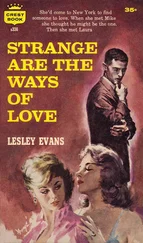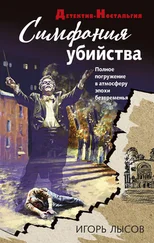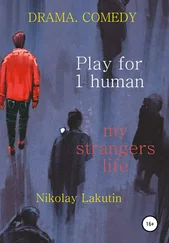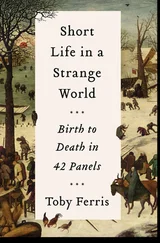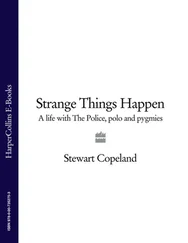Douglas Hofstadter - I Am a Strange Loop
Здесь есть возможность читать онлайн «Douglas Hofstadter - I Am a Strange Loop» весь текст электронной книги совершенно бесплатно (целиком полную версию без сокращений). В некоторых случаях можно слушать аудио, скачать через торрент в формате fb2 и присутствует краткое содержание. Жанр: Прочая документальная литература, на английском языке. Описание произведения, (предисловие) а так же отзывы посетителей доступны на портале библиотеки ЛибКат.
- Название:I Am a Strange Loop
- Автор:
- Жанр:
- Год:неизвестен
- ISBN:нет данных
- Рейтинг книги:4 / 5. Голосов: 1
-
Избранное:Добавить в избранное
- Отзывы:
-
Ваша оценка:
- 80
- 1
- 2
- 3
- 4
- 5
I Am a Strange Loop: краткое содержание, описание и аннотация
Предлагаем к чтению аннотацию, описание, краткое содержание или предисловие (зависит от того, что написал сам автор книги «I Am a Strange Loop»). Если вы не нашли необходимую информацию о книге — напишите в комментариях, мы постараемся отыскать её.
I Am a Strange Loop — читать онлайн бесплатно полную книгу (весь текст) целиком
Ниже представлен текст книги, разбитый по страницам. Система сохранения места последней прочитанной страницы, позволяет с удобством читать онлайн бесплатно книгу «I Am a Strange Loop», без необходимости каждый раз заново искать на чём Вы остановились. Поставьте закладку, и сможете в любой момент перейти на страницу, на которой закончили чтение.
Интервал:
Закладка:
The one–two punch of the Norwegian “Pig” and the Sardinian piglet resulted in my following my sister’s lead in completely giving up meat-eating. I also refused to buy leather shoes or belts. Soon I became a fervent proselytizer for my new credo, and I remember how gratified I was that I managed to sway a couple of my friends for a few months, although to my disappointment, they gradually gave up on it.
In those days, I often wondered how some of my personal idols — Albert Einstein, for instance — could have been meat-eaters. I found no explanation, although recently, to my great pleasure, a Web search yielded hints that Einstein’s sympathies were, in fact, toward vegetarianism, and not for health reasons but out of compassion towards living beings. But I didn’t know that fact back then, and in any case many other heroes of mine were certainly carnivores who knew exactly what they were doing. Such facts saddened and confused me.
Reversion, Re-evolution
The very strange thing is that only a few years later, I, too, found the pressures of daily life in American society so strong that I gave up on my once-passionate vegetarianism, and for a while all my intense ruminations went totally underground. I think that the me of the mid-sixties would have found this reversal totally unfathomable, and yet the two versions of me had both lived in the very same skull. Was I really the same person?
Several years passed this way, almost as if I had never had any epiphany, but then one day, when I was a beginning assistant professor at Indiana University, I met a highly thoughtful woman who had adopted the same vegetarian philosophy as I once had, and had done so for similar reasons, but she had stuck to it for a longer time than I had. Sue and I became good friends, and I admired the purity of her stance. Our friendship caused me to think it all through once more, and in short order I had swung back to my post-“Pig” stance of no killing at all.
Over the next several years there came a few more oscillations, but by my late thirties I had finally settled into a stable state — a compromise representing my evolving intuition that there are souls of different sizes. Though it was anything but crystal-clear to me, I was willing to accept the vague idea that some souls, provided they were “small enough”, could legitimately be sacrificed for the sake of the desires of “larger” souls, such as mine and those of other human beings. Although drawing the dividing line at mammals was clearly somewhat arbitrary (as any such dividing line must be), that became my new credo and I stuck with it for two more decades.
The Mystery of Inanimate Flesh
We English speakers do not eat pig or cow; we eat pork and beef. We do eat chicken — but we don’t eat chickens. One time the very young daughter of a friend of mine exclaimed with great mirth to her father that the word for a certain farm bird that clucks and lays eggs was also the word for a substance that she often found on her plate at dinnertime. She found this a most humorous coincidence, similar to the humorous coincidence that “calf ” means both a young cow and a part of one’s leg. She was upset, needless to say, when she was told that the tasty foodstuff and the clucky egg-layer were one and the same thing.
Presumably we all go through much the same confusion when, as children, we discover we are eating animals that our culture tells us are cute — lambs, bunnies, calves, chicks, and so forth. I remember, albeit dimly, my own genuine childhood confusion at this mystery, but since meat-eating was such a bland commonplace, I usually swept it under the rug and didn’t give it much thought.
Nonetheless, grocery stores had an annoying way of bringing the issue up very vividly. There were big display cases with all sorts of slimy-looking blobs of various strange colors, labeled “liver”, “tripe”, “heart”, and “kidney”, and sometimes even “tongue” and “brain”. Not only did these sound like animal parts, they looked like them as well. Fortunately, what was called “ground beef ” didn’t look terribly much like an animal part, and I say “fortunately” because it tasted so good. Wouldn’t want to be talked out of that ! Bacon tasted great too, and strips of the stuff were so thin and, once cooked, so crunchy, that they hardly conjured up thoughts of an animal at all. How fortunate!
It was the unloading docks at the rear of grocery stores that made the mystery come back with a vengeance. Sometimes a big truck would pull up and when its rear doors swung open, I would see huge hunks of flesh and bones dangling lifelessly on scary-looking metal hooks. I would watch with morbid curiosity as these carcasses were carried into the back of the store and attached to hooks that slid along overhead rails, so that they could be moved around easily. All this made the preadolescent me very uneasy, and as I gazed at a carcass, I could not help musing, “Who was that animal?” I wasn’t wondering about its name, because I knew that farm animals didn’t have names; I was grasping at something more philosophical — how it had felt to be that animal as opposed to some other one. What was the unique inner light that had suddenly gone off when this animal had been slaughtered?
When I went to Europe as a teenager, the issue was raised more starkly. There, lifeless animal bodies (usually skinned, headless and tailless, but sometimes not) were on display in front of all customers. My most vivid recollection is of one grocery store that, around the Christmas season, featured the severed head of a pig on a table in the middle of an aisle. If you chanced to approach it from the rear, you would see a flat cross-section showing all the inner structures of that pig’s neck, exactly as if it had been guillotined. There were all the dense communication lines that had once connected all the far-flung parts of this individual’s body to the central “headquarters” in its head. Seen from the other side, this pig had what looked like a smile frozen on its face, and that gave me the creeps.
Once again, I couldn’t help wondering, “Who once had been in that head? Who had lived there? Who had looked out through those eyes, heard through those ears? Who had this hunk of flesh really been? Was it a male or a female?” No answers came, of course, and no other customers seemed to pay any attention to this display. It seemed to me that nobody else was facing the intense questions of life, death, and “porcinal identity” that this silent, still head provoked so powerfully and agitatedly inside mine.
I sometimes asked myself the analogous question if I squished an ant or clothes moth or mosquito — but not so often. My instincts told me that there was less meaning to the question “Who is ‘in there’?” in such cases. Nonetheless, the sight of a partly squished insect writhing around on the floor would always give rise to some soul-searching.
And indeed, the reason I have raised all these grim images is not in order to crusade for a cause to which probably most of my readers have already given considerable thought; it is, rather, to raise the burning issue of what a “soul” is, and who or what possesses one. It is an issue that concerns everyone throughout their life — implicitly at the very least, and for many people quite explicitly — and it is the core issue of this book.
Give Me Some Men Who Are Stouter-souled Men
I alluded earlier to my deep love for the music of Chopin. In my teens and twenties, I played a lot of Chopin on the piano, often out of the bright yellow editions published by G. Schirmer in New York City. Each of those volumes opened with an essay penned in the early 1900’s by the American critic James Huneker. Today, many people would find Huneker’s prose overblown, but I did not; its unrestrained emotionality resonated with my perception of Chopin’s music, and I still love his style of writing and his rich metaphors. In his preface to the volume of Chopin’s études, Huneker asserts of the eleventh étude in Opus 25, in A minor (a titanic outburst often called the “Winter Wind”, though that was certainly neither Chopin’s title nor his image for it), the following striking thought: “Small-souled men, no matter how agile their fingers, should not attempt it.”
Читать дальшеИнтервал:
Закладка:
Похожие книги на «I Am a Strange Loop»
Представляем Вашему вниманию похожие книги на «I Am a Strange Loop» списком для выбора. Мы отобрали схожую по названию и смыслу литературу в надежде предоставить читателям больше вариантов отыскать новые, интересные, ещё непрочитанные произведения.
Обсуждение, отзывы о книге «I Am a Strange Loop» и просто собственные мнения читателей. Оставьте ваши комментарии, напишите, что Вы думаете о произведении, его смысле или главных героях. Укажите что конкретно понравилось, а что нет, и почему Вы так считаете.



